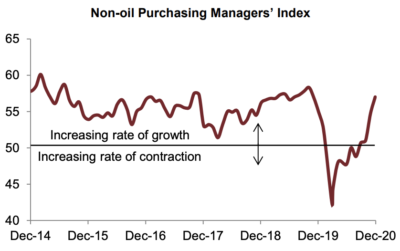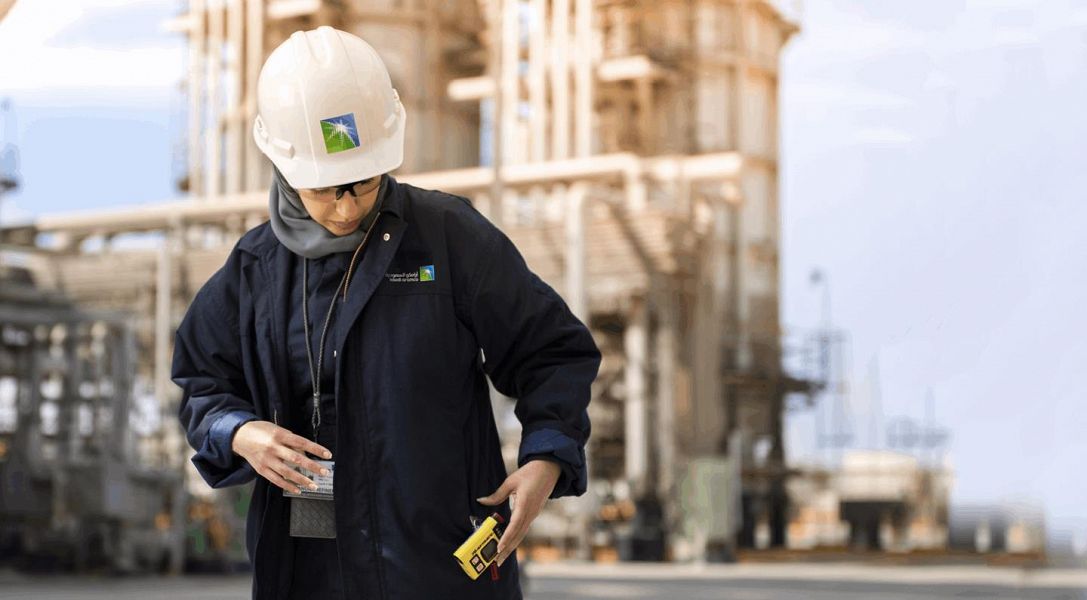Saudi Arabia’s non-oil Purchasing Managers Index (PMI) ended the year with a “remarkable rise” in December, with the index hitting its highest reading since November 2019, Jadwa Investment said in its latest Chartbook publication dated February 2021.
The sharp rise was driven by higher output and local demand within the private sector coinciding with the commencement of a vaccine rollout in the Kingdom. At the same time, cement sales and production also continued to rise in December, by 10.4 percent and 9 percent, respectively, Jadwa said.

The non-oil PMI ended the
year with a remarkable rise
in December.
The Purchasing Managers Index (PMI) is a measure of the prevailing direction of economic trends in manufacturing. The PMI is based on a monthly survey of supply chain managers across 19 industries, covering both upstream and downstream activity.
Jadwa said 2020’s significant rise “mainly correlated with continued progress on PIF mega-projects around the Kingdom.”
Meanwhile, latest available data for November shows that non-oil exports jumped by 9 percent month-on-month, and by 12 percent year-on-year, recording the highest annual rise since September 2018. The annual jump was supported by rises in exports of ‘plastics & rubbers’ and ‘transport equipment’ by 12 and 64 percent year-on-year, respectively, according to Jadwa.
More positive economic data was seen in point-of-sale transactions, which rose by almost 35 percent year-on-year in December, and by 10 percent month-on-month. During 2020 as a whole, POS transactions rose by 24 percent year-on-year, affected by expansions in ’telecommunication’, ‘food and beverage’ and ‘restaurants and cafes’. Meanwhile, ‘education’, ‘hotels’, and ‘jewelry’ witnessed the largest declines in 2020, the report said.
The net monthly change to government accounts with SAMA were down by SR38 billion ($10.1 billion) month-on-month in December, “a trend that is usually seen towards the end of the year,” Jadwa said.
[Click here to read the full report from Jadwa Investment] [Arabic]









